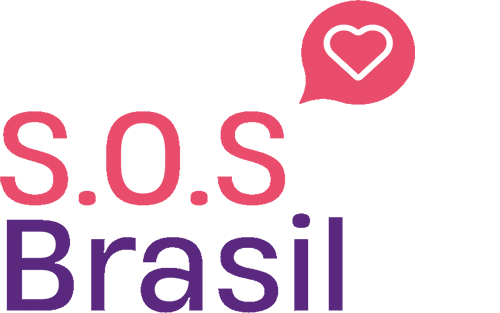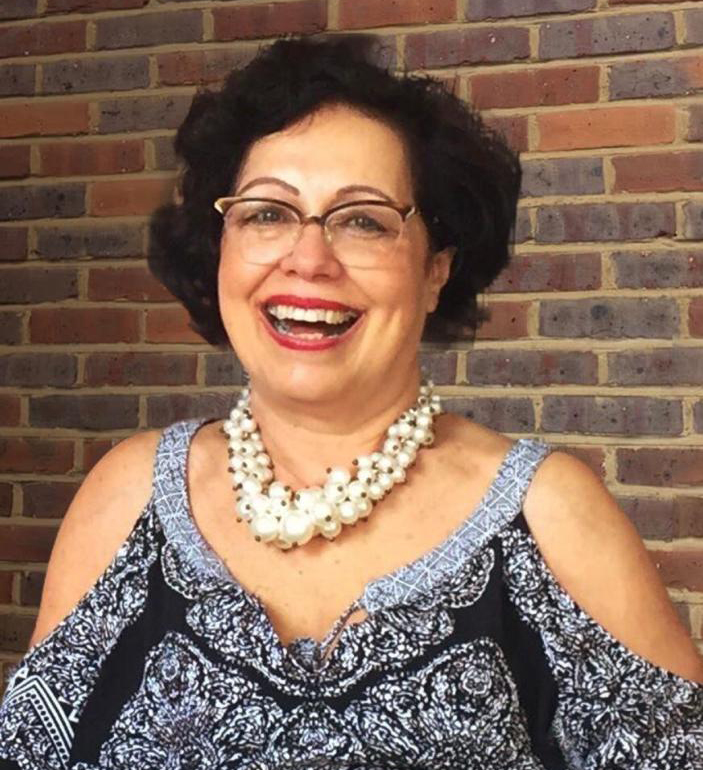
Children's Minds in the Line of Fire Blog
S.O.S. Brasil
Alicia Beatriz Dorado de Lisondo
… it is possible to foresee that at some time or other the conscience of society will awaken and remind it that the poor man should have just as much right to assistance for his mind as he now has to the life-saving help offered by surgery; and that neuroses threaten public health no less than tuberculosis, and can be left as little as the latter to the impotent care of individuals of the community. When this happens, there will be institutions… to which analytically trained clinicians will be appointed, so that… for children for which there is no choice but between running wild and neurosis, may be capable, by analysis, of resistance and efficient work.
Freud (1918) “Lines of Progress in Psychoanalytic Therapy”
In Brazil, Covid inflamed an already catastrophic situation. It revealed the structural misery of poor people and the system in which they are imbedded. This situation led to a disaster in the fight against the pandemic; a disaster that resulted in 700,000 deaths.
S.O.S. Brazil was a psychoanalytic response to this catastrophe. This project is an attempt to offer psychoanalytic listening to open up the possibility of giving expression to unbearable pain. It was born from a call for expression of a psychoanalytic social responsibility. As the above quote illuminates, this call began with Freud.
Babies, children and adolescents, as well as those responsible for fulfilling parental functions, and professionals in health, education and the judiciary, are at risk for cumulative trauma. They need the psychic oxygen of psychoanalytic listening and containment to deal with pain, terror and helplessness. Our commitment is to prevent trauma from decimating these human beings. Contemporary psychoanalysis recognizes the potential for the analyst to offer an unprecedented experience, capable of opening new horizons and enabling new representations to take root in the psyche.
We, as psychoanalysts in the twenty first century, cannot limit our work to the private practice setting. It is necessary to move beyond the walls of our consulting rooms. This move confronts us more directly with places where we feel impotent and forces us to work with that psychic reality. From the safety of our offices, it is more possible to rely on supposed knowledge. In this way, moving out into the social and into our communities invites a deeper reckoning with the unknown. As Bion reminds us, this should be what we orient towards as psychoanalysts.
Since the creation of the project, we have attended to 482 children, adolescents, parents and caregivers. The SOS Brasil Project is promoted through its website, social networks, radio and TV programs, and many scientific spaces in order to inform the population about the assistance this project provides. All psychoanalysts participating in S.O.S. are part of a subgroup, called an atelier. These groups have workshops (every 15 days for one hour and a half) and are led by a senior analyst. These meetings provide containment and thereby function to improve thinking processes and creativity. They help metabolize the intense anxieties that emerge when we work in the front line of psychic catastrophes.
We have a total of 11 ateliers divided into 5 work areas: babies and families (0 to 3 years), children (3 to 11 years), adolescents (11 to 21 years), adults (caregivers), Institutions, and the body group. The latter is a multidisciplinary team with professionals from various areas: pediatricians, psychiatrists, speech therapists, physiotherapists, lactation consultants, osteopaths, social workers and occupational therapists, to meet the diverse demands that child and adolescence care require. Each of these ateliers has a coordinator and a variable number of participating psychoanalysts. These working groups allow for clinical discussion as well as help the analyst develop their potential for creative, aesthetic and poetic thinking.
As emergency care, we propose a small number, from 3 to 8 sessions. We seek psychoanalytic comprehension- emotional contact that can sew the holes caused by traumas, bleeding in living body and in the mental tissue. To extend the bodily metaphor, we offer emergency care to staunch the bleeding of these severe psychic wounds.
There are scientific meetings, held once a month in which senior analysts respond to presentations of patients in the different axes. Also, a research project was carried out with analysts who participate in Projeto SOS Brasil, about their vision of the Project. The following are themes that we have observed in each axis.
In axis I babies and the family (0 to 3 years old) we find maternal depression. The baby and the mother often lack of paternal support. Sometimes an unwanted baby presents disturbances in emotional development due to conflicts within the primary relationship between mother and baby.
In axis II Children (3 to 11 years old) we find many children with disorders on the autism spectrum, wrongly diagnosed as mentally ill or intellectually disabled. Also, we see psychosomatic disorders, school complaints, and trauma due to an inability to mourn the death of parents and caregivers.
In axis III Adolescents (11 to 18 years old) we find suicide attempts, self-mutilation, sexual violence, drug addiction, apathy, withdrawal from the education system, and antisocial behavior.
In axis IV, Caregivers: Health, education, law professionals, parents and caregivers seek SOS when feeling helpless, disoriented and without psychological resources to deal with traumatic situations, severe depression, anxiety and social pain.
The axis V, Institutions In Brazil, the Covid-19 pandemic left more than 200,000 registered orphans. Psychoanalysts offer a psychic continence to the professionals of the institution that allows access to their internal resources and makes it possible to re-signify their experiences.
We have been trying to spread the SOS project through many interviews in the media, on Instagram, as well as presenting it in the “Diário de la Calle de Fepal” and in “Conscientizar”. As part of this effort, a book will be released at the end of 2023. At the IPA Congress in Cartagena this community project was awarded a first-place prize and recognized for its effective and invaluable contribution to the health area.
I began with a quote from Freud from over a hundred years ago. I will conclude with another from the French psychoanalysts Maria Torok and Nicholas Abraham. “… all the words that could not be said, all the scenes that could not be recalled, all the tears that could not be poured will be swallowed, as well as, at the same time, trauma… the unspeakable mourning installs within the subject a secret grave… (an) unconscious that leads a separate and hidden life.”
Patients who are socially vulnerable know an enormous amount about psychological suffering and about bleeding wounds in the soul. Until recently, they did not know about psychoanalysis and its transforming power. A teenager promises his analyst at the end of his allotted sessions: I don’t want to go to another service. Wait for me, wait for me. I will study, work and treat myself with you again, with you. Wait for me!
I would like to thank the IPA, PACE, and Harvey Schwartz, FEBRAPSI, and all colleagues who work at SOS Brasil for their support and encouragement of this project.
References
Abraham, N. & Torok, M. (1984) “The Lost Object—Me”: Notes On Identification within the Crypt. Psychoanalytic Inquiry 4:221-242
Freud, S. (1919) Lines of Advance in Psycho-Analytic Therapy. The Standard Edition of the Complete Psychological Works of Sigmund Freud 17:157-168
Author Alicia Beatriz Dorado de Lisondo
 Full Member of the Sociedade Brasileira de Psicanálise de Campinas (SBPCamp) and the Sociedade Brasileira de Psicanálise de São Paulo (SBPSP) - International Psychoanalytical Association (IPA) component societies. Co-founder of the Psychoanalytic Study Group of Campinas. IPA Child and adolescent psychoanalyst. Member of the Latin American Association of babis observation - Esther Bick Method (ALOBB). Participant of the Prisma Group Psychoanalysis and Autism (GPPA) Protocol. Coordinator of the S.O.S Brasil project with the sponsorship of the Brazilian Federation of Psychoanalysis (FEBRAPSI), Latin American Psychoanalytic Federation (FEPAL) and the International Psychoanalytical Association (IPA). Co-Coordinator of the study group of adoption and parenthood in SBPSP. Coordinator of the study group in Autism: Clinical and Research - SBPSP.
Full Member of the Sociedade Brasileira de Psicanálise de Campinas (SBPCamp) and the Sociedade Brasileira de Psicanálise de São Paulo (SBPSP) - International Psychoanalytical Association (IPA) component societies. Co-founder of the Psychoanalytic Study Group of Campinas. IPA Child and adolescent psychoanalyst. Member of the Latin American Association of babis observation - Esther Bick Method (ALOBB). Participant of the Prisma Group Psychoanalysis and Autism (GPPA) Protocol. Coordinator of the S.O.S Brasil project with the sponsorship of the Brazilian Federation of Psychoanalysis (FEBRAPSI), Latin American Psychoanalytic Federation (FEPAL) and the International Psychoanalytical Association (IPA). Co-Coordinator of the study group of adoption and parenthood in SBPSP. Coordinator of the study group in Autism: Clinical and Research - SBPSP.
 Back to Children's Minds in the Line of Fire Blog
Back to Children's Minds in the Line of Fire Blog